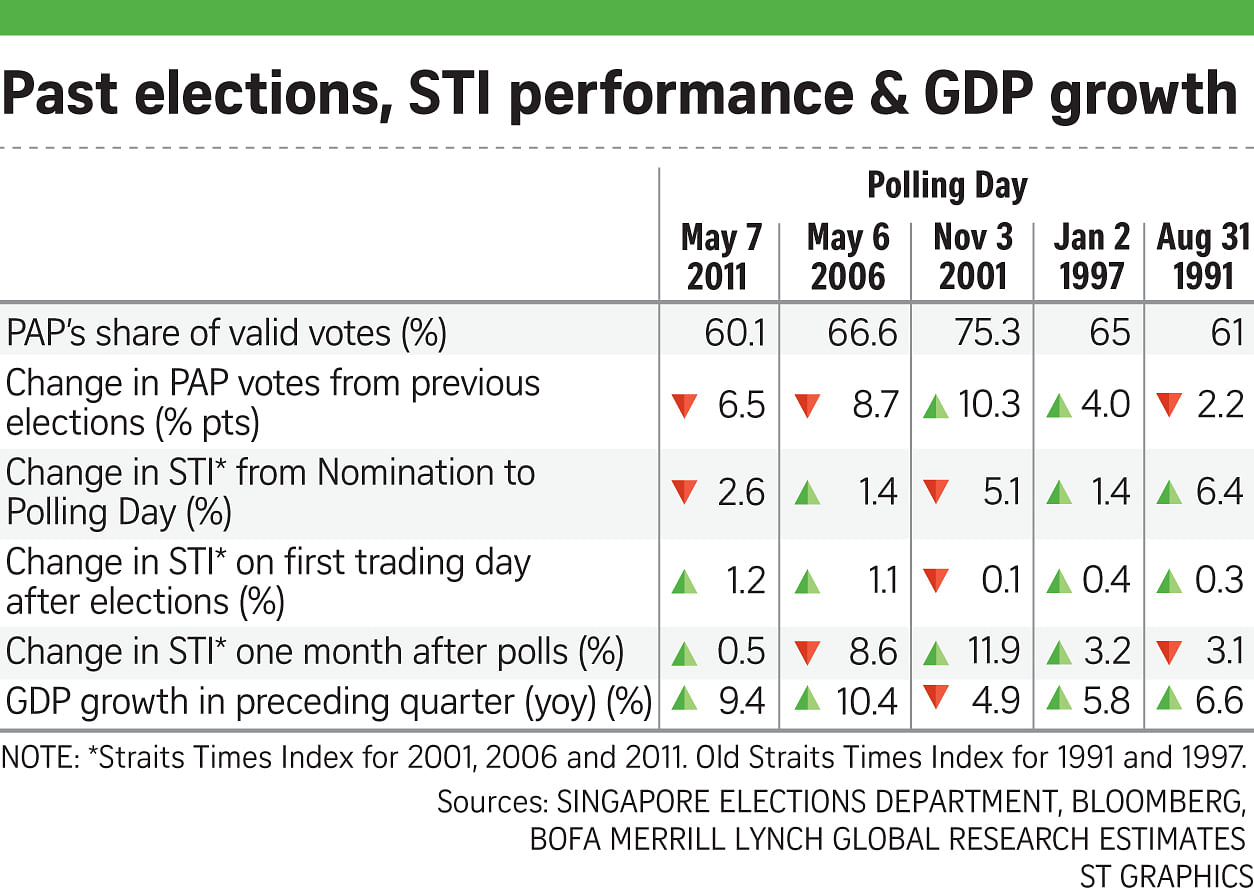The economic slowdown and an unfolding political crisis in Malaysia could help the People's Action Party (PAP) at the polls, said Bank of America Merrill Lynch economist Chua Hak Bin.
He noted in a report yesterday that the PAP tends to receive a larger share of the votes during downturns. In the November 2001 elections, held in a period when Singapore was in a recession triggered by the dot.com crash in the United States, the PAP won with a landslide 75.3 per cent share of the votes. This was more than 10 percentage points higher than in the 2006 polls.
And in January 1997, in the early phase of the Asian financial crisis, the PAP won 65 per cent of the votes, a 6.6 per cent increase from the 1991 elections.

"The shock outcome of the 2011 watershed elections was during an economic boom, when growth was more than 9 per cent," noted Dr Chua. The PAP won 60.1 per cent of the votes in 2011, its poorest showing since Independence.
"This current downturn, with growing anxieties over falling markets and neighbouring Malaysia's political crisis, may work in favour of the PAP," Dr Chua said.
"A better showing could provide the Government greater political space to devote more attention to a faltering economy and adjust its overly tight prudential and manpower policies."
The Sept 11 polls come at a time when the economy is at risk of slipping into a technical recession, which is when there are two consecutive quarters of quarter-on-quarter shrinkage.
Dismal manufacturing numbers released last Wednesday, which showed factory output sliding 6.1 per cent in July, prompted some economists to warn that the technical recession threat is once again looming. Manufacturing, which makes up a fifth of the economy, has been hit by both sluggish external demand and domestic restructuring, including stricter foreign manpower policies.
The sector was the main drag on growth in the second quarter, when the economy contracted 4 per cent over the preceding three months.
If the PAP's performance is boosted by the downturn, the stock market might benefit too, Dr Chua said.
The benchmark Straits Times Index (STI) typically performs well in the month following an increase in the PAP popular vote share, with the exception of 2011, he noted.
"During the poor PAP performances of the 1991 and 2006 elections, the STI fell by 3 per cent and 9 per cent respectively in the one month after. During the better showings in 1997 and 2001 elections, the STI was flat and rose 3 per cent and 12 per cent respectively in the month after."
During 2011, the STI was largely unaffected by the "shock result", but this may have been because the markets, anticipating weaker PAP support, were already falling in the lead-up to elections, he said.

